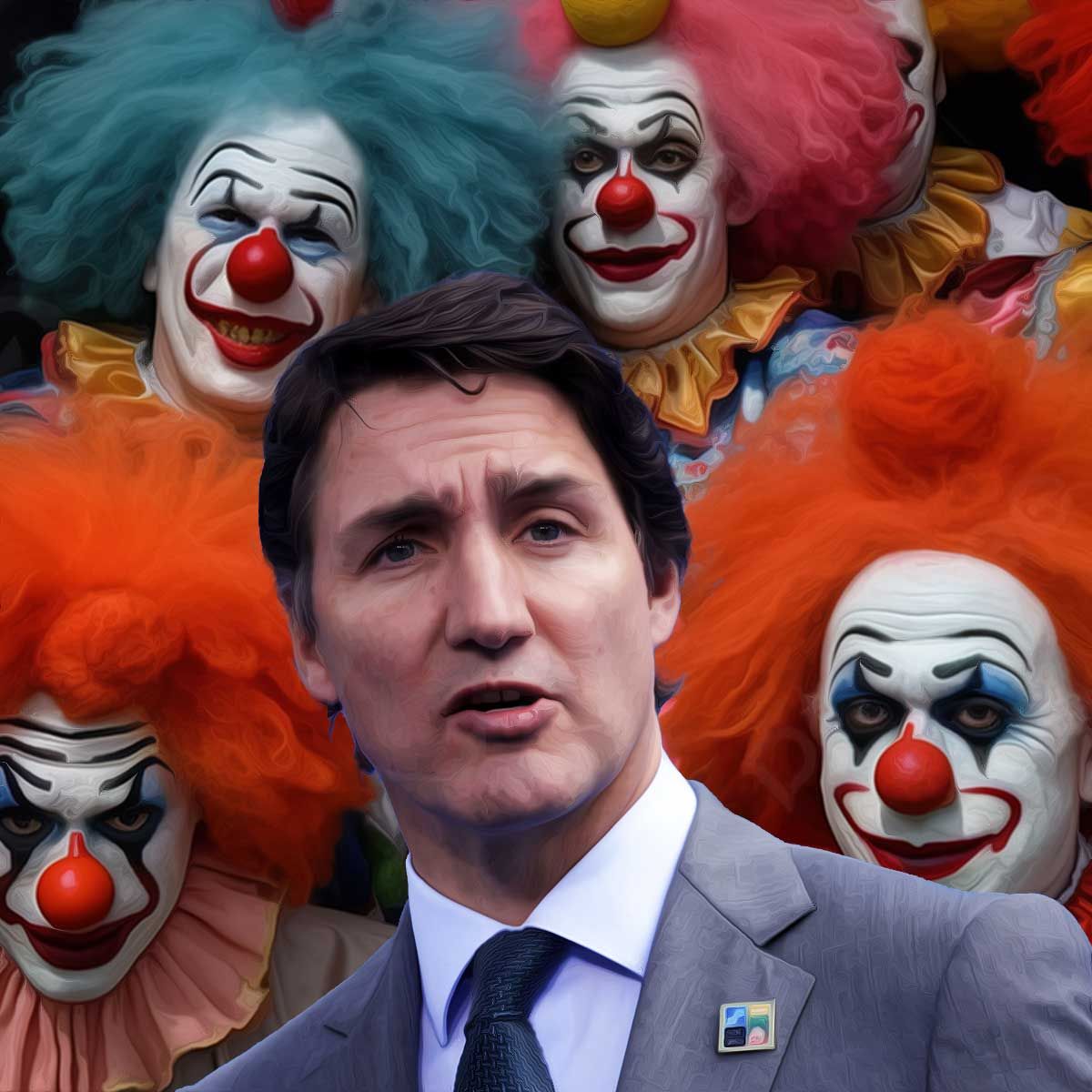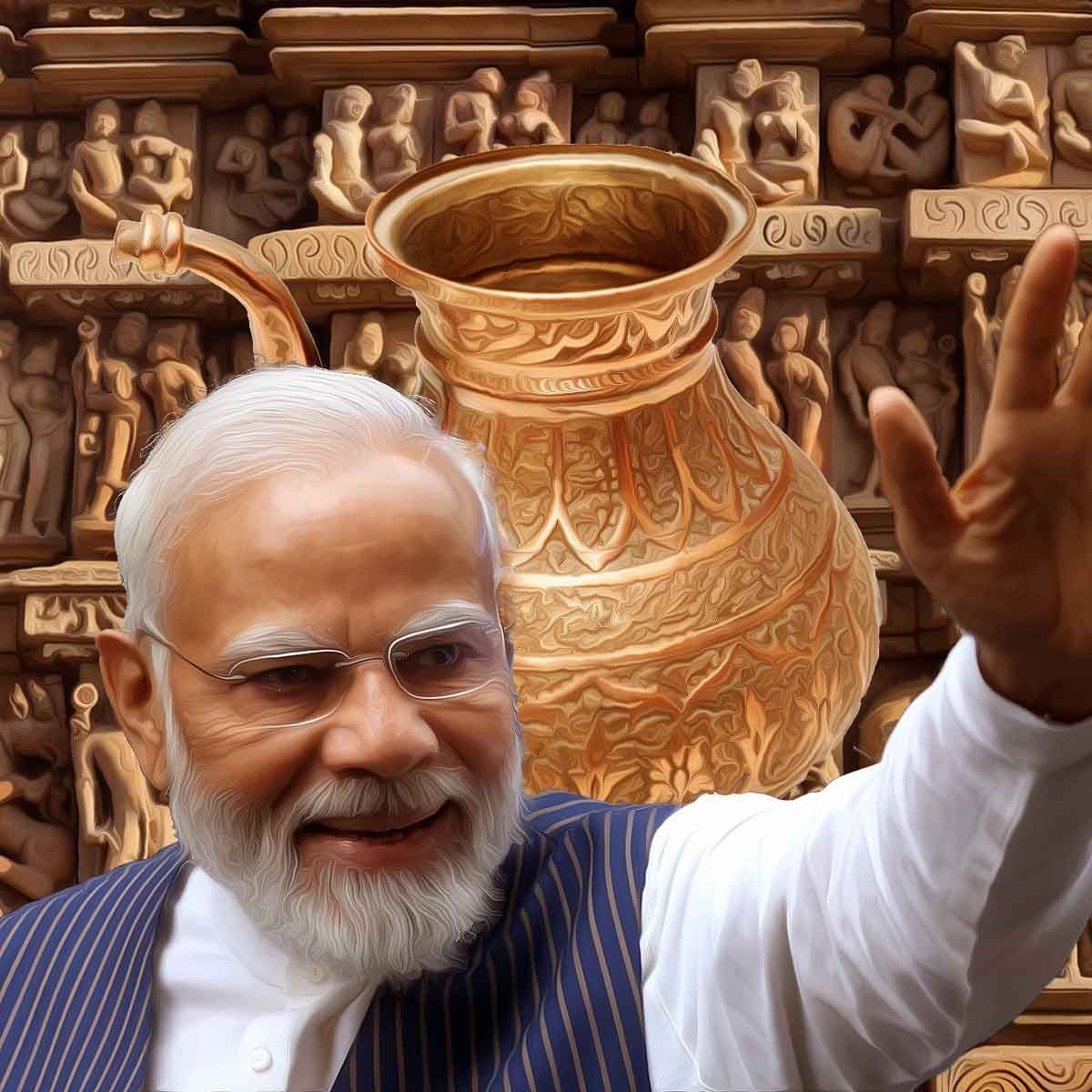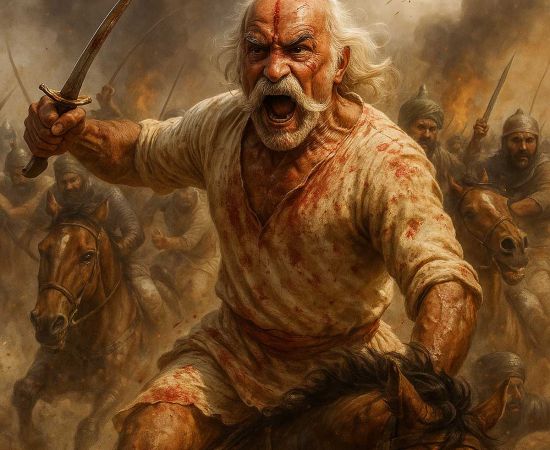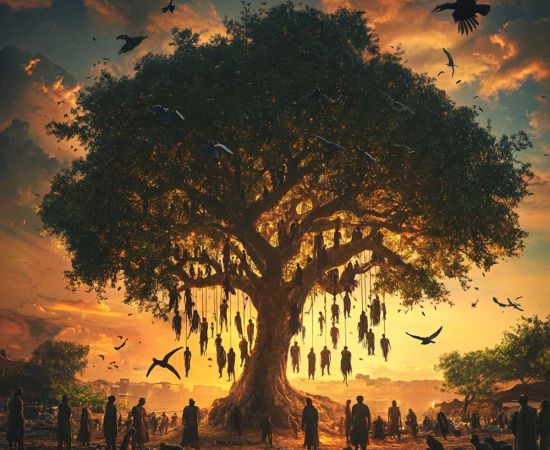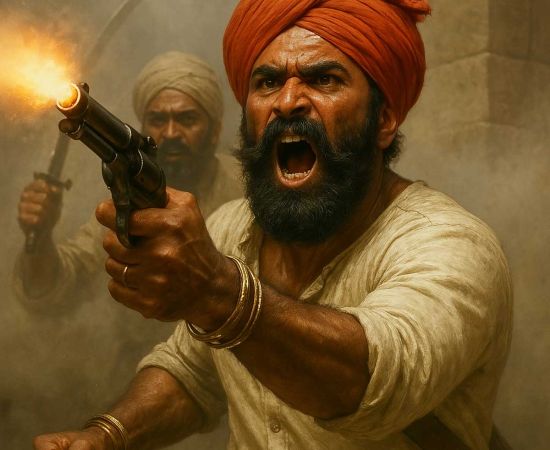MORE COVERAGE
Twitter Coverage
Satyaagrah
Written on
Satyaagrah
Written on
Satyaagrah
Written on
Satyaagrah
Written on
Satyaagrah
Written on
JOIN SATYAAGRAH SOCIAL MEDIA
"All revolutions are impossible until they happen. Then they become inevitable": After numerous calls for harsh punishments, the Iranian parliament on Tuesday voted overwhelmingly in favor of death penalty for the 15,000 protesters they already arrested

After numerous calls for harsh punishments in recent days, the Iranian parliament on Tuesday voted overwhelmingly in favor of the death penalty for protesters.
|
Iran has been experiencing unprecedented levels of protests and civil unrest since the death of Mahsa Amini on September 16. The 22-year-old Kurdish woman was arrested by the country's "morality police" for supposedly wearing an "improper" form of hijab during a visit to Tehran and allegedly beaten severely while in custody. The beatings are believed to have led to her death from a fatal head injury, but Iranian authorities have denied the accusation.
In the wake of Amini's death, there have been large-scale nationwide protests the likes of which Iran has not seen in decades. Female protesters have notably taken to burning their hijabs and cutting their hair in public in defiance of the rules imposed by Iran's Islamic government, under the leadership of Ayatollah Ali Khamenei.
Iranian lawmakers have, in recent days, called for strict punishments for the protesters who have been arrested. On Monday, CNN reported that a letter signed by 227 members of the Iranian parliament urged that the protesters be given harsh punishment that "would serve as a good lesson in the shortest possible time."
|
"Now, the public, even protesters who are not supportive of riots, demand from the judiciary and security institutions to deal with the few people who have caused disturbances in a firm, deterrent, and legal manner," Iranian government spokesman Masoud Setayeshi said, according to Reuters.
On Tuesday, parliament did just that, voting to impose the death penalty on all protesters in custody as a "hard lesson" for all rebels. The majority in favor of the penalty was considerable, 227 out of the 290 total members, matching the number of lawmakers who signed the letter.
It is unclear if and when the executions will be carried out, but the task will potentially be significant. As of Thursday, CNN reported, about 14,000 people had been arrested in connection with the recent protests. On Tuesday, Carnegie Endowment fellow Karim Sadjadpour said the number was nearing 15,000. It is also unclear how many of these arrests will lead to punishable charges.
|
"In the last 8 weeks Iran's regime has killed over 300 protestors, imprisoned nearly 15,000, and threatened to execute hundreds more, yet Iran's women persist," Sadjadpour wrote in a tweet. "Today female university students removed their forced hejab and chant, 'I am a free woman.'"
Several prominent figures in Iran are calling for a response from foreign governments.
"Outrageous! After killing 100s of protesters on the streets & a violent crackdown, 227 MPs in Iran called the protesters "Mohareb" & asked the judiciary to issue "retribution" sentences [execution]," journalist Omid Memarian tweeted on Sunday. "The world should respond. Dangerous!"
In response to the parliament vote, activist and journalist Masih Alinejad tweeted: "227 members of the 290-seat Parliament in Iran have called on the Judiciary to issue death sentences for people arrested during the ongoing uprising. They want to execute innocent protesters who chanted Woman Life Freedom. The world must stop this act of terror."
|
Iran has started a war on journalists
Nationwide protests against the Islamic regime in Iran have continued there for over seven weeks with no sign of stopping and the mullahs are growing impatient. Last week, the Iranian parliament voted to execute protesters who had been arrested, which amounts to roughly 14,000 (known) people.
Only a few days later, the regime announced they are actively pursuing journalists working with the network Iran International – and even arrested the sister of slain wrestler Navid Afkari, falsely accusing her of being a journalist for Iran International. Yet there’s one place Iranian regime leaders and supporters are safe: Twitter.
In the aftermath of the regime’s announcement that they are pursuing journalists, the Islamic Revolutionary Guard Corps’s Fars News agency released a graphic on social media with the faces and names of Iranian journalists abroad with the text, “wanted dead or alive.” These threats were amplified across that platform by pro-regime accounts, including those with tens of thousands of followers, with comments comparing the journalists to Salman Rushdie, the author who for decades has lived under a fatwa, issued by the Islamic regime, to kill him.
In August, Rushdie was brutally stabbed at a public lecture by a supporter of Ayatollah Khamenei. The same week as the attack on Rushdie, Khamenei’s response was to tweet that the fatwa remains in effect for anyone who kills Rushdie.
According to UK sources, hundreds of activists and journalists based in the UK have been notified by UK security that their lives are in danger by the Islamic regime over their support for the protests in the past month – or in the case of journalists, simply covering the demonstrations against the Islamic regime.
|
Iran also has a long history of kidnappings and attempted kidnappings of journalists on foreign soil, including the attempted kidnapping of Iranian-American journalist Masih Alinejad in New York last year. Yet apparently none of this is enough for these accounts calling for violence to be removed on Twitter.
Legally speaking, the question of free speech is difficult to define, but one thing is certain: speech that explicitly calls for violence against a person or group of people, especially when it is likely to happen and possible to carry out, is not protected speech. For years, Ayatollah Khamenei and his minions have used Western social media and the Western values of free speech to propagate their nefarious extremist ideology across social media in multiple languages.
Meanwhile, the application itself is blocked in Iran by the Islamic regime for its 85 million civilians. If a dictator denies free speech to 85 million of his own citizens, why on earth does Twitter feel obligated to protect that dictator’s “right” to free speech?
Even this past week, when the 227 members of the Iranian parliament voted for the death penalty for the arrested protesters, the ayatollah was busy using Twitter to spread disinformation, falsely accusing the US and Israel of instigating the protests.
He even tweeted about the terror attack in Shiraz, which many believe the regime itself instigated, in order to distract from the protests. The regime officials blamed ISIS and accused Israel of orchestrating with ISIS to carry out the attack.
|
SADLY, THE extremist rhetoric of the ayatollah – the leader of the US-designated terrorist organization, the IRGC, and who controls multiple proxy terrorist organizations such as Hezbollah – is nothing new. For years he has personally used the social media platform to spread calls to violence, antisemitism, and disinformation against Israel, the US, and the entire West, leading to attacks on innocent civilians on foreign soil.
The most recent and obvious example is the attack on Rushdie. Such rhetoric isn’t simply hateful or reprehensible, like much of the antisemitic and racist content on social media, but actually poses a threat of danger. For that reason, in just a few days a petition to remove the ayatollah from Twitter received over 70,000 signatures.
The Islamic regime in Iran has become an expert in using the perks of Western society to sow discord and disinformation on social media networks. Ayatollah Khamenei is a huge part of that problem and the ringleader for all manner of human rights atrocities across the world. Twitter must act to protect journalists and innocents everywhere by removing him from Twitter, as well as accounts promoting violence and calling for the assassination of members of the press.
References:
 Support Us
Support Us
Satyagraha was born from the heart of our land, with an undying aim to unveil the true essence of Bharat. It seeks to illuminate the hidden tales of our valiant freedom fighters and the rich chronicles that haven't yet sung their complete melody in the mainstream.
While platforms like NDTV and 'The Wire' effortlessly garner funds under the banner of safeguarding democracy, we at Satyagraha walk a different path. Our strength and resonance come from you. In this journey to weave a stronger Bharat, every little contribution amplifies our voice. Let's come together, contribute as you can, and champion the true spirit of our nation.
 |  |  |
| ICICI Bank of Satyaagrah | Razorpay Bank of Satyaagrah | PayPal Bank of Satyaagrah - For International Payments |
If all above doesn't work, then try the LINK below:
Please share the article on other platforms
DISCLAIMER: The author is solely responsible for the views expressed in this article. The author carries the responsibility for citing and/or licensing of images utilized within the text. The website also frequently uses non-commercial images for representational purposes only in line with the article. We are not responsible for the authenticity of such images. If some images have a copyright issue, we request the person/entity to contact us at satyaagrahindia@gmail.com and we will take the necessary actions to resolve the issue.
Related Articles
- "भाग भाग डीके बोस": After Israel’s airstrike eliminated Hezbollah chief Hassan Nasrallah, Iran’s Supreme Leader Ayatollah Khamenei went into hiding, as Operation New Order decimated Hezbollah’s leadership and missile arsenal with bunker buster bombs
- "The boisterous sea of liberty is never without a wave": Triumph of Iranians - Iran abolishes morality police after more than two months of protests triggered by the arrest of Mahsa Amini for allegedly violating the country's strict female dress code
- "War unchosen, the outcome unforeseen; Israel stands firm": Iran-backed Houthis in Yemen escalate conflict by declaring war on Israel, launching missiles and drones at Eilat, prompting a robust response from the IDF with advanced interception technology
- "When all other rights are taken away, the right of rebellion is made perfect": Iran - 326 dead, 15,000 arrested; security forces opened fire on anti-hijab protesters at Tehran metro station who were setting headscarves on fire and chanting against regime
- "The story of life is quicker than the blink of an eye, the story of love is hello, goodbye": Nika Shakarami 17, vanished during the protest over the murder of Mahsa Amini, security forces delivered her dead body with her nose fully smashed, skull pounded
- "Better to die fighting for freedom than be a prisoner all the days of your life": Unarmed Iranians walk towards police, one by one, opening up their arms, shouting; “we are not scared of bullets, kill us”, nation mourns 40th day of Mahsa Amini death
- "Empires won by conquest have always fallen either by revolt within or by defeat by a rival": 18-year-old Mahsa Mogoi shot dead by police in Iran while protesting the murder of Mahsa Amini amidst ongoing protests over mandatory wearing of hijab in public
- As the Israel-Hamas war looms large, all eyes pivot to Hezbollah's potential influence, despite Israel's preference for peace, US takes no chances, bolstering its military presence to counteract Iran and its proxies, marking a tense geopolitical standoff
- "Karma is Real": Iran launches a bold missile and drone strike on terrorist bases within Pakistan, coinciding with the Pakistani PM's meeting with Iranian FM in Davos, sparking intense diplomatic fallout, raising critical questions about regional security
- "To improve is to change; to be perfect is to change often": United Nations removes Iran from Women Rights Panel drawing applause from Iranian dissidents who are seeking to depose the hardline regime following murder of Mahsa Amini for not wearing hijab
- "Those who make peaceful revolution impossible will make violent revolution inevitable": Anti-hijab activist Armita Abbasi in danger, hospital staff reported a shivering girl suffering from internal bleeding, because of rape & torture, missing for 10 days
- "Bravery births revolution": Iranian student strips down outside Tehran’s Islamic Azad University in a protest against Basij militia harassment, she later fell into a coma at noon, reportedly after being tortured by security guards, echoing Mahsa Amini
- "Nefarious Design Unearthed": Israeli President Isaac Herzog claims that it was Iran who orchestrated Oct 7 Hamas attacks to derail India-Middle East-Europe Economic Corridor as it is paving the way for Israel's inclusion in the region and peace process
- "Like ocean waves crashing against the shore, the memories remain long after this goodbye": 20 year old Iranian girl, Hadis Najafi becomes a new symbol of defiance as she put her hair in a bun before confronting armed law enforcement officers empty-handed
- "Don’t be mad at the mirror if you are ugly": Russian energy giant Gazprom and National Iranian Oil Company signed a $40-billion MOU on President Putin visit, West sanctions tried to limit funding to Russia that might be used for war against Ukraine












